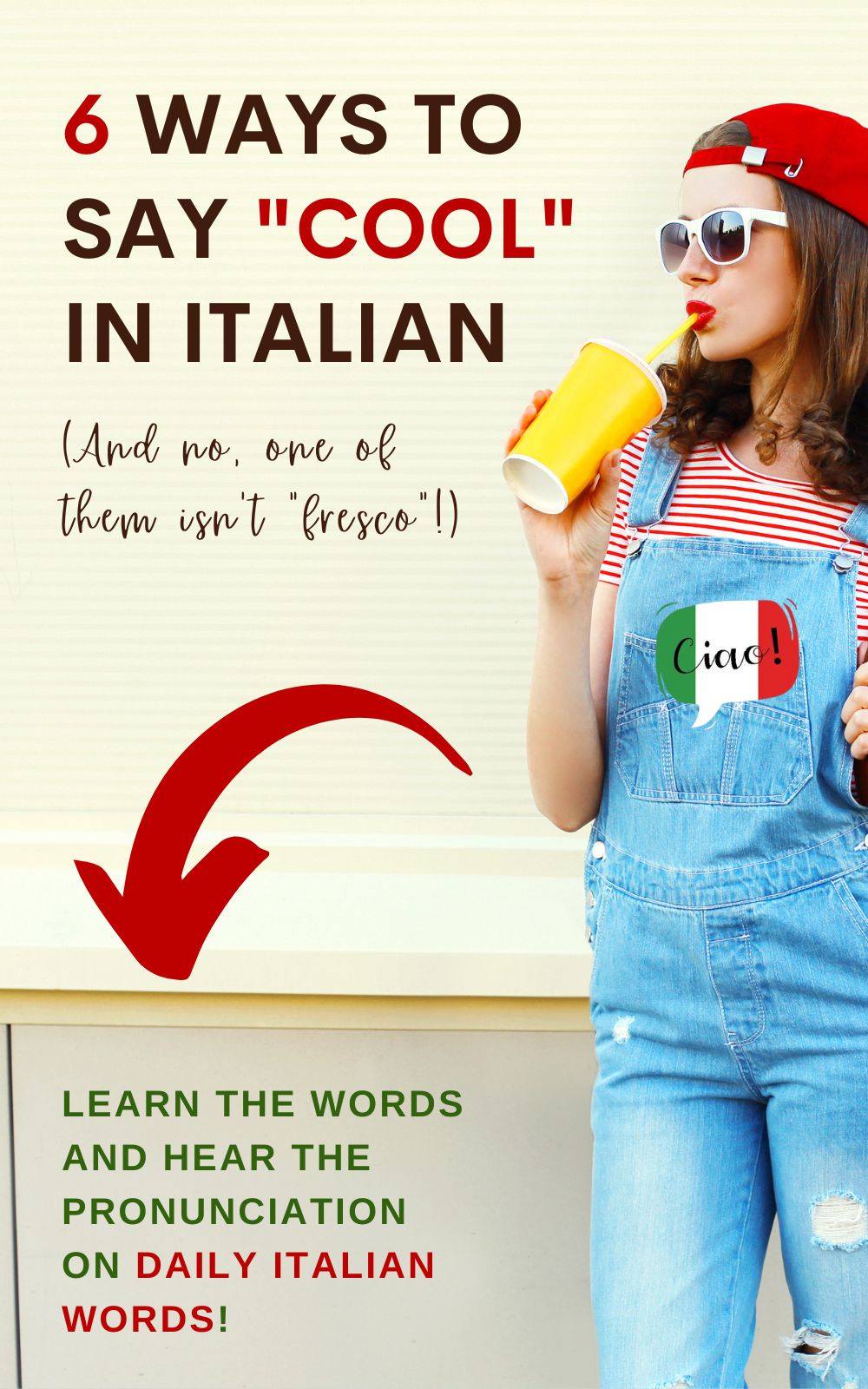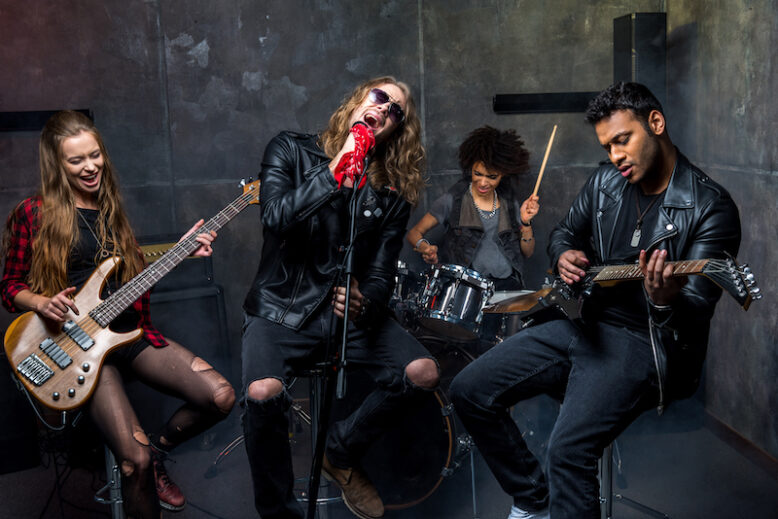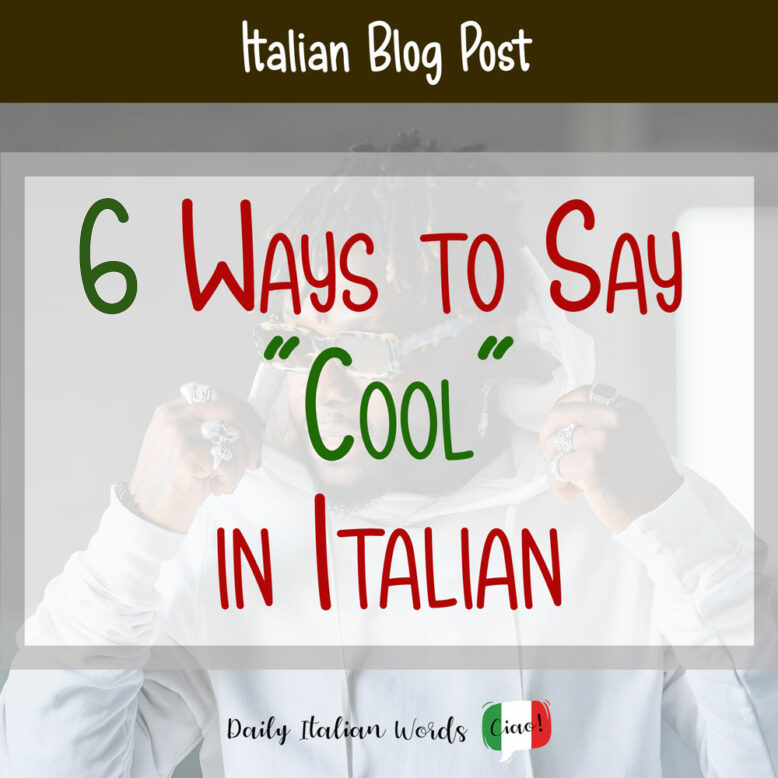In English, we use the word cool as a blanket slang term for someone whose attitude, behaviour, appearance and style we admire, or something that we find fashionable, interesting or outstanding.
There are numerous possible ways to say cool in Italian depending on your own personal style and who or what you are talking about. In this article, we’ve covered five of the most common translations!
Important: While the Italian word fresco does mean “cool” in the sense of temperature (opposite of warm), it is not used as a translation for “cool” when describing someone or something we like or admire.

1. Figo / Fico
Perhaps the most accurate translation for cool is the adjective figo (or fico in some regions of Italy). Mostly used by the younger generation, it denotes a person or thing that is considered attractive, interesting, fashionable or popular.
Che figo questo gioco! Potrei giocarci tutto il giorno!
This game is so cool! I could play it all day!
In its feminine form, figo / fica becomes figa / fica. This word is perfectly innocent when used to talk about feminine objects (e.g. una foto figa = a cool photo) but one should take care when using it to talk about women. This is because, in addition to meaning cool or good-looking, it is also a vulgar slang term for a woman’s private parts.
Questa macchina decappottabile è troppo figa!
This convertible car is super cool!

A related expression you may hear is Che figata! which means How cool! or That’s so cool! It is used to describe something that you like very much, which could be anything from a concert to an item of clothing.
2. Forte / Forza
Both forte and forza (which literally mean strong and strength respectively) are acceptable translations for cool when used as a positive exclamation in response to something someone has said. Note that forte works on its own, whereas forza must be preceded by che (what/how).
Ieri sono andato a Gardaland con gli amici. – Forte!
Ieri sono andato a Gardaland con gli amici. – Che forza!
Yesterday I went to Gardaland with my friends. – Cool!
Another expression you might hear is roba forte which literally means cool stuff / cool thing.
Questo gruppo è roba forte!
This group is really cool!

3. Mitico
Mitico literally means legendary, mythical or mind-blowing but it is often used in the same sense as the word cool in English.
Elvis è mitico. È sempre stato il mio cantante preferito.
Elvis is really cool. He’s always been my favourite singer.
In fact, men often use it to greet one another as a term of endearment.
Ciao mitico! Come stai?
Lit: Hey, cool guy! How are you?

Mitico is related to mito, a word Italians use in a similar way to say that a person is a great or legendary, or an idol. For example, the first phrase above could easily be changed to Elvis è un mito. È sempre stato il mio cantante preferito.
4. Bello
The word bello is one of those super flexible words in Italian that has numerous English equivalents, and one of them just happens to be cool!
Bello (and its absolute superlative bellissimo) can be interpreted as cool when used as an exclamation, or when talking about things rather than people. If used to talk about a person, the more accurate translation would be beautiful or handsome.
Hai comprato una nuova casa? Che bello!
You bought a new house? That’s cool!

5. Fantastico
Fantastico, which means fantastic, is pretty self-explanatory. It can be used for both people and things you find cool.
Queste scarpe sono fantastiche! Le compro subito!
These shoes are cool! I’m going to buy them right away!

6. Spacca / Spaccano
Two exclamations you’ll often hear used among the young generation are Spacca! or Spaccano!. For example:
Questo gruppo spacca!
This group rocks!
Questi gruppi spaccano!
These groups rock!
Spacca and spaccano are the third person singular and plural forms of the verb spaccare (literally “to break” but also “to blow up”).

Helpful hint: In order to say very cool in Italian, you can place adverbs like troppo (too) or molto (very) in front of adjectives like figo, forte and bello, or you can transform them into the absolute superlatives fighissimo, fortissimo, or bellissimo.
Can you think of any other ways to say cool in Italian? If so, let us know in the comments section below!

Heather Broster is a graduate with honours in linguistics from the University of Western Ontario. She is an aspiring polyglot, proficient in English and Italian, as well as Japanese, Welsh, and French to varying degrees of fluency. Originally from Toronto, Heather has resided in various countries, notably Italy for a period of six years. Her primary focus lies in the fields of language acquisition, education, and bilingual instruction.


